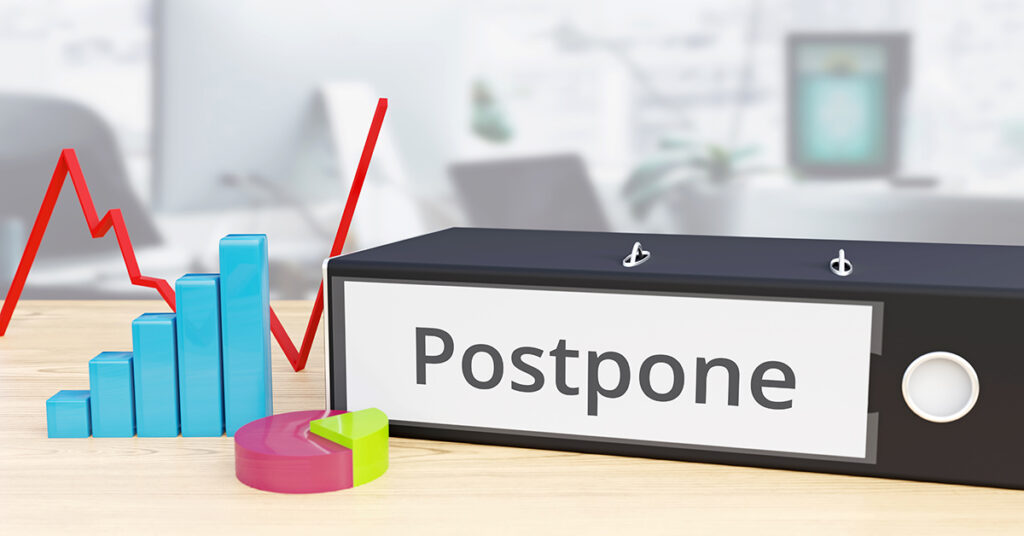Postponed import VAT accounting (PIVA) allows business to declare and immediately recover import VAT in their regular VAT returns. The scheme was introduced in January 2021 as businesses importing from the EU would have suffered negative cash flows after Brexit and in absence of the Reverse Charge mechanism. Learn more about the postponed VAT accounting scheme and how to use it in the following article.
Antonia Klatt
Last Updated on 25 February 2022
What is postponed VAT accounting (PVA)?
Companies in the UK have to pay import VAT on any imports exceeding £135. Since Brexit, this also applies to imports from the European Union into the United Kingdom, severely impacting many UK businesses or companies registered for VAT in the UK. They would have to pay the import VAT immediately to avoid having goods held in customs, leading to a negative cash flow impact.
The United Kingdom aims to avoid this with the new postponed VAT accounting (PVA) mechanism, also called “postponed accounting” or “postponed import VAT accounting (PIVA)”, which was introduced on the 1st of January 2021. The new scheme allows businesses to record the import VAT on their VAT return instead of paying it immediately and claiming it later, effectively replacing the EU Reverse Charge mechanism. While the outcome is the same, businesses don’t need to pay import VAT immediately and before selling or reselling their products, avoiding negative cash flows.
In summary, the postponed VAT accounting (PVA) scheme allows you to
- Postpone the payment of import VAT by
- Accounting for import VAT in your regular VAT returns and
- Reclaiming import VAT in your regular VAT return
It is important to note that the postponement of VAT is different from the delayment of import declarations, which delays sending HMRC the full information about your goods by up to 175 days on a supplementary declaration
How does postponed VAT accounting work?
If you want to use the postponed VAT accounting mechanism, you need to fill out several fields accordingly in both your customs declaration and VAT return.
Postponed VAT on your customs declaration
On your customs declaration you generally need to enter your EORI Number, starting with GB for Great Britain or XI for Northern Ireland. You also need to fill in your UK VAT number (VRN). In Box 47e you need to fill in a code indicating your method of payment. If you wish to use the postponed VAT accounting scheme, you will need to enter a “G” in this box. This way, customs will not hold your goods but note that import VAT will be accounted for later on.
Since customs declarations can be complex, many businesses hire transporters or customs agents to complete them. If this is the case you need to make sure that your service provider knows that you want to use the PVA scheme. If the box is filled out incorrectly, you will be liable for the import VAT immediately. In any case, you should make sure to keep records of your VAT declarations for at least 6 years.
Monthly Postponed Import VAT Statement (MPIVS)
If you have postponed the import VAT on your customs declarations you will need to declare the VAT on your VAT Return. In order to do so, you will need your Monthly Postponed Import VAT statement (MPIVS), which is produced once a month by the HMRC. The MPIVS report lists all postponed VAT, or more specifically, all VAT amounts of imports for which you entered a “G” in box 47e on your customs declaration.
The MPIVS is available in the month following the submission of the customs declarations. Imports in January will, therefore, appear in the statement by the 6th working day in February. In order to access the MPIVS you need to sign up for the customs declaration service. Once registered, you can access the monthly postponed import VAT statement. Before you continue filling out your VAT return, you should download the MPIVS, compare it with your own records and investigate any discrepancies. You should also keep copies of the MPIVS, in case they will no longer be available online.
Postponed VAT on your VAT Return
On your regular VAT return, there are three boxes that you need to pay attention to when using the postponed VAT accounting method.
- Box 1: VAT due on sales and other outputs
- Box 4: VAT reclaimed on purchases and other inputs
- Box 7: Total value of purchases and all other inputs excluding any VAT
In Box 1 you should include the VAT on imports that was postponed in this period. This number corresponds to the number displayed in your MPIVS. In Box 4 you should include the VAT on imports that was postponed and that you reclaim in this period. Generally, this will be the same number that you entered in Box 1, effectively neutralising the import VAT. However, if your business is partially exempt, the amount to be entered in Box 4 is subject to the partial exemption calculation and will, therefore, differ from the amount in the MPIVS and Box 1.
Lastly, in Box 7 you should include the total net-value (value excluding VAT) of all imports for which you postponed VAT.
If you don’t use the postponed accounting scheme and pay the import VAT immediately, you will only need to fill in Boxes 4 and 7. It should also be noted that the amounts in the boxes can not be manually adjusted in the Making Tax Digital (MTD), but only in the main record-keeping software. In case you are using MTD, you will need to complete this process in an additional step.
Who can use the postponed import VAT accounting (PIVA)?
Every business that is registered for VAT in the UK and imports goods for business use into the UK can postpone the VAT. You do not need to apply and get approval, but can start using the scheme at any time and immediately. However, businesses who are not complying with the tax and customs law may be excluded from the PVA scheme. Similarly, a business may be required to prove the viability of their business operations and their capacity to pay their VAT liabilities.
The postponement applies to all imports into the UK from anywhere outside the UK. Please note that differing rules apply to Northern Ireland, as it is still part of the EU VAT area.
Do I need to use postponed VAT accounting?
The PIVA scheme is completely optional. You can participate immediately or you can choose to pay the VAT upfront when the goods enter the UK at the port of entry and reclaim them later.
If you choose to not take advantage of the postponed VAT accounting you will need to obtain monthly C79 reports from the HMRC. These are the same reports that have been and still are necessary to import goods from non-EU countries.
Postponed Import VAT accounting was only mandatory if you made use of the initial six-month customer deferment period after the end of the Brexit transition period. In this case you deferred the submission of customs declaration and the usage of the new scheme was mandatory.
Postponed VAT accounting and Northern Ireland
Northern Ireland continues to be part of both the United Kingdom and the European VAT area. That means that the country has a unique VAT and customs arrangement going forward.
Imports from the European Union into Northern Ireland are still treated as intra-community supplies and acquisitions. Therefore, postponed VAT accounting can not be used and is not necessary. Instead, the Reverse Charge mechanism applies.
Goods movement between Northern Ireland and the rest of the UK are treated as domestic sales and purchases. Again, no postponed VAT accounting is necessary as these movements are not subject to import VAT but instead fall under standard UK VAT procedure.
However, businesses from Northern Ireland can still use the postponed VAT accounting scheme for imports from any country outside the European Union. In fact, for B2B imports with a value below £135, postponed import VAT accounting is mandatory.



